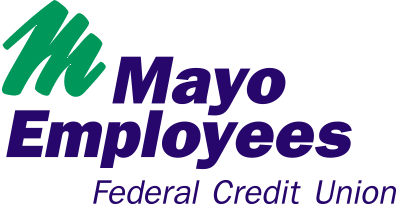
Seven tips to help you succeed with credit cards
Credit cards work by issuing you a line of credit that you can use to make purchases, which you are then required to pay back, ideally in full at the end of each billing cycle so that you don’t accrue interest expense. You can apply for a credit card on your own when you are 18 years old, otherwise someone needs to cosign if you are younger than 18.
1. You may need to make a deposit before you can get your first credit card – Because you’re unproven in the world of credit, credit card companies will often ask for a security deposit of around $200, just in case you don’t pay your debt back to them. The first card you get is a “secured” card that has the security deposit attached to it. After the credit card company views the first-time user as trustworthy enough to not require a security deposit, they will issue an unsecured card.
2. Shop around before you apply – Credit card companies are required by law to disclose on their website their interest rates and fees, such as annual fees and foreign transaction fees. Before you decide what to sign up for, you’ll want to take full advantage of this information and learn the pros and cons of any credit card that catches your eye. A good feature to look for when choosing your first card is no annual fees. Keep in mind that every time you apply for a credit card and a lender checks your credit, it will be noted as a hard inquiry on your credit report. These hard inquiries can ding your credit score by a few points so it’s worth doing your homework so that you reserve your hard inquiries for only the cards you actually want.
3. It’s ideal to pay your bill on time and in full – Credit cards often come with a high-interest rate, or APR (annual percentage rate), that can be very intimidating. But as long as you pay your credit card bill on time and in full, you won’t ever have to pay interest. Enrolling in autopay is an easy way to make sure you never miss a credit card payment, but mistakes do happen. If you miss a payment, you may get a penalty APR if you don’t pay your bill within 60 days. Penalty APRs last for at least six months but can be longer if you continue to make late payments. Some cards even state that the penalty APR may be applied indefinitely, so be careful!
4. Use up very little of your credit limit – Spending below your credit limit is an essential step toward reaching a good credit score. The unwritten rule is to not spend more than 10%-30% of your credit limit. This percentage is a common credit card term called your utilization rate, the ratio of how much credit you use compared to your limit of credit. Credit cards designed for those just starting out may have low limits, but once you get other cards and your overall limit grows, you’ll want to pay close attention to your credit utilization rate and be sure to spend it wisely. As your credit card usage goes up over time and you try to maintain a low utilization rate, consider asking for a credit limit increase as long as you are 100% confident you won’t overspend. You can also pay down your bill multiple times a month, or even right after you use it, to keep your balance low.
5. Review your credit card charges often – It is very important to report unauthorized credit card charges as immediately as you can, so you aren’t overcharged, but credit cards are more secure than debit cards when it comes to fraud liability. With debit cards, you could be fully liable if someone steals your debit card information. However, with most credit card companies, you have 24-hour fraud protection and identity theft assistance so they are there to cover your fraudulent charges. Under federal law, the most you could ever be liable for with a fraudulent credit card charge is $50. Make it a weekly habit to check your credit card account. Also viewing your spending habits may help motivate you to make sure you are sticking to your budget as well.
6. Don’t be afraid to use your credit card – Keeping a $0 balance on your credit card won’t do you or your credit score any good. Lenders and credit card companies want to see how you use credit, so it is important you make purchases on your credit card. Keeping it active will also prevent your issuer from closing it on you. While it is ideal to keep your credit card utilization between 10%-30%, you also want to be sure you are using your card to its fullest benefit too.
7. Weigh the pros and cons of canceling your first credit card – Your first credit card will have a big impact on your credit history. As long as you use it responsibly, the impact can be very positive. Canceling your credit card can be harmful to your credit score, especially if it’s your oldest card. It will bring down the average age of your account and it will decrease your overall credit limit, which is an important factor in calculating your credit score.
MEFCU offers Visa Credit Cards in Classic and Platinum options. The Classic Card has up to a $5,000 limit and the Platinum Card has up to a $25,000 limit. When you are building credit, whether for the first time, or if you have a lower credit score or other credit issues, the Secured Card is a great choice. This will allow you to use the funds in your savings account as collateral, which will then determine your credit limit.
Other features of both MEFCU credit cards include no annual fee, 1% cashback, debt defender, digital wallet options, Visa purchase alerts, travel accident insurance, zero-fee balance transfers, zero-free cash advances and Verified by Visa service. Apply online or by phone anytime. If you want to get your card even faster, visit one of these Rochester office locations: Cascade Lake, 41st Street or Centerplace. These offices offer instant issue debit and credit cards so we can better serve you!
